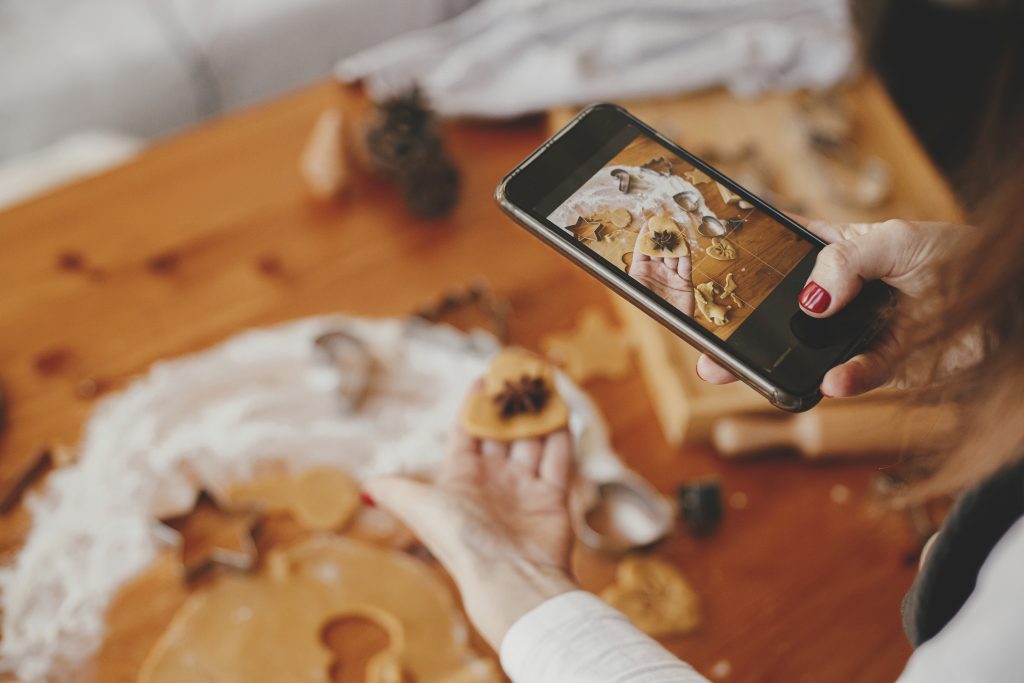Instagram has become one of the most powerful platforms for restaurants to connect with local diners, showcase their food, and drive real business results—without relying on traditional advertising. The app is visual, fast, and built for the kind of content restaurants create naturally: beautiful dishes, lively atmosphere, and behind-the-scenes action.
At Restaurant Suite 360, we specialize in helping restaurants across Florida grow through strategic content and local marketing. Whether you’re a food truck just getting started or a full-service restaurant looking to boost awareness, Instagram can be your most cost-effective growth channel—when used the right way.
Here’s how to set your restaurant up for long-term success on Instagram.
Why Instagram Marketing Works for Restaurants
Instagram is more than a social media platform—it’s a discovery engine. Potential diners use it to decide where to eat, what to order, and what to expect before they even visit your website. According to Meta, over 80% of Instagram users follow at least one business, and food content remains one of the platform’s most-consumed categories.
For restaurants, this means:
- You can reach potential customers organically, without spending on ads.
- Beautiful food images and short videos perform extremely well.
- Customers love tagging and sharing their experience, giving your brand word-of-mouth at scale.
It’s also one of the few platforms where consistency matters more than follower count. A small restaurant with 1,000 local followers and strong engagement can outperform a large brand with weak content.
Setting Up a Business-Ready Instagram Profile
Before you start posting content, your profile needs to be optimized for discovery and conversion.
Switch to a Business Account
If you haven’t already, convert your profile into an Instagram Business Account. This unlocks access to insights, promotional tools, contact buttons, and integration with Meta Business Suite for scheduling and messaging.
Write a Keyword-Friendly Bio
Your bio should do three things:
- Tell users what kind of food you serve
- Mention your location
- Include a call to action
Example:
Fast-casual Dominican kitchen in Downtown Orlando.
Order online, dine in, or book catering.
Include keywords like “Latin food Orlando” or “best empanadas in Miami” where it makes sense—this supports your local SEO efforts.
Use the Right Link in Bio
Instead of linking to your homepage only, use tools like Linktree or Later’s Link in Bio to share:
- Online ordering
- Menu
- Reservation link
- Gift cards
- Event RSVP
Tip: Don’t overwhelm users. Stick to 3–4 high-priority links.
Optimize Profile Image and Highlights
Your profile photo should either be your logo or a recognizable food item if your brand isn’t well known yet. It should still look good in a small circle.
Use Story Highlights to showcase:
- Menu
- Reviews
- Events
- Location info
- Team or chef intros
Make sure your highlight covers are branded and easy to read.
Add Contact Buttons
Enable buttons for:
- Call
- Directions
These make it easy for mobile users to take action directly from your profile—whether that’s booking a table or calling ahead for takeout.
What to Post: High-Engagement Content Strategies for Restaurants
Once your restaurant profile is optimized, the next step is consistent, quality content that reflects your brand and encourages local diners to engage. On Instagram, it’s not about being perfect—it’s about being real, relevant, and memorable.
Here’s what works best for restaurants on Instagram:
1. Showcase Signature Dishes and Daily Specials
Post high-quality photos and videos of your most popular or visually striking menu items. This helps potential guests “taste with their eyes” and makes your food easier to crave—and share.
Tips:
- Use natural lighting when possible.
- Keep the background clean and consistent with your brand.
- Include location-based keywords in captions:
“Our shrimp mofongo is a Miami favorite—served fresh daily!”
Video ideas:
- Pouring sauces
- Close-up prep moments
- Final plating and table delivery
2. Behind-the-Scenes Content
People love to see what happens behind the kitchen doors. Whether it’s your chef preparing a dish, staff setting up for service, or a morning delivery of fresh ingredients, this builds trust and personality.
Ideas:
- Meet the team: quick interviews or candid shots
- Prep process: slicing plantains, seasoning meat, etc.
- Staff favorites: each team member shares their go-to dish
Behind-the-scenes content adds human connection to your brand and invites customers into your story.
3. User-Generated Content (UGC) and Reposts
Encourage guests to tag your restaurant in their stories and posts. When they do, repost their content (with credit). This not only strengthens relationships but also provides social proof for new followers.
To drive more UGC:
- Add a sign or table tent: “Tag us @saborcriollo for a chance to be featured!”
- Run monthly giveaways for customers who post
- Always reply and thank users who tag you
4. Announcements and Seasonal Promotions
Instagram is a great channel for communicating what’s new—whether it’s a limited-time dish, new hours, or a special event.
Examples:
- “Now open for brunch every Sunday”
- “Limited-time tamarind margarita 🍹 — only this weekend”
- “Live music Friday nights starting this week!”
Make these posts clear, branded, and easy to share.
5. Reels and Short-Form Video
Instagram Reels are currently favored in the algorithm and can help you reach new audiences outside your followers.
Reels ideas for restaurants:
- Step-by-step dish preparation (sped up)
- “Day in the life” of the chef or server
- Customer reactions or reviews
- Transformation of the space before opening
Keep Reels under 30 seconds, use trending audio (if it fits your brand), and include location-specific hashtags like #OrlandoFoodie or #TampaLatinEats.
6. Instagram Stories: Stay Top-of-Mind Daily
Stories keep your restaurant visible every day and allow for informal, real-time updates. They’re perfect for:
- Menu changes
- Behind-the-scenes moments
- Polls and questions (e.g., “Which dessert should we add next?”)
- Reminders for promos (“Lunch specials start at 11 AM!”)
Tip: Add stories to Highlights so new visitors can view them later.
Hashtags and Location Tags: Boost Local Reach
Use a mix of general and local hashtags:
- #latinrestaurant
- #miamifoodscene
- #mofongolovers
- #brickelleats
Always add your restaurant’s location or neighborhood tag when posting—it improves visibility in local discovery feeds and Instagram’s search.
How to Grow Your Instagram Audience Organically
Growing a local following on Instagram doesn’t require viral videos or expensive influencers. It requires consistency, authenticity, and smart engagement tactics. Here’s how your restaurant can build a steady, loyal audience that actually walks through your doors.
1. Post Consistently, Not Constantly
You don’t need to post every day to stay relevant—but you do need a reliable rhythm. Three to four times per week is often enough for restaurants, especially when posts are strategic and engaging.
Tip:
- Create a content calendar at the beginning of each month
- Include themes like: “Menu Monday,” “Team Tuesday,” “Throwback Thursday,” or “Feature Friday”
- Batch content creation once per week to reduce daily stress
Staying active reminds followers you exist, increases engagement, and improves visibility in the Instagram algorithm.
2. Engage With Local Accounts
Instagram rewards real engagement, not just posting. Spend 15–20 minutes per day interacting with:
- Local food bloggers or influencers
- Customers who tag your location
- Other nearby businesses
Leave comments, reply to stories, and share local happenings. This builds your presence in the community—and earns you goodwill in return.
Search hashtags like:
- #orlandofoodie
- #floridaeats
- #miamirestaurants
- #downtowntampa
…and follow people who engage with those posts. Many will follow back if your page is visually strong.
3. Partner with Micro-Influencers or Local Creators
You don’t need to hire celebrities. Micro-influencers (people with 1,000–10,000 local followers) often drive better results—especially for restaurants.
Collaboration ideas:
- Invite them for a free tasting and ask them to post
- Run a giveaway together (tag + follow to win a dinner for two)
- Let them “take over” your stories for a night
These creators tend to have higher trust with their audience—and cost far less than big names.
4. Use Instagram’s Built-In Tools to Boost Reach
Leverage all the features available to increase exposure:
- Location tagging: Always add your city or neighborhood
- Alt text for accessibility and SEO: Describe your photos to help visibility
- Pinned posts: Highlight your best 3 posts at the top of your feed
- Collaborator tags: Tag partners or influencers as collaborators for double visibility
These small tactics help the algorithm understand your relevance to local searchers and food lovers.
5. Host Giveaways to Attract New Followers
When done right, giveaways can drive huge engagement and brand exposure.
Best practices:
- Offer a prize with real value (free meal, tasting event, gift card)
- Ask users to follow, like, and tag a friend in the comments
- Bonus: require a share to stories for extra entries
Example:
“WIN DINNER FOR 2 — Tag someone you’d bring! Follow @saborcriollo and share to your stories to enter. Winner announced Friday!”
Giveaways not only boost reach—they often bring in your best kind of followers: locals who eat out.
6. Track What Works and Improve Over Time
Use Instagram Insights to measure:
- Which posts get the most engagement
- Best times of day to post
- Follower growth by week or campaign
If photo carousels consistently perform better than videos, lean into that. If people are watching Reels all the way through, make more. Let the data shape your future content.
Turning Instagram Followers Into Paying Customers
Attracting likes and followers is only part of the job. The real win is turning that engagement into table reservations, takeout orders, and long-term loyalty. Here’s how to bridge the gap between your content and your cash register.
1. Use Strong Calls to Action (CTAs)
Every post should guide your audience toward a next step. That doesn’t always mean “book now,” but it should always serve a purpose.
Examples of CTAs that drive action:
- “Order now with the link in bio”
- “Tag someone who owes you dinner”
- “Try this dish today—available only until Sunday”
- “Book your table before we sell out this weekend”
Your captions should do more than entertain—they should create urgency, curiosity, or desire.
2. Add Ordering and Reservation Links in Your Bio
Instagram doesn’t allow clickable links in captions. That makes your bio link one of the most important pieces of real estate.
Tips:
- Use a tool like Linktree, Metricool, or direct your domain (e.g., sabortropical.com)
- Include links to:
- Menu
- Online ordering
- Reservations
- Private events or catering
If someone scrolls through your feed and gets hungry, your bio should help them take action in seconds.
3. Highlight Customer Favorites and Best Sellers
Don’t leave discovery up to chance. Use your posts to highlight:
- Your most popular dishes
- Seasonal specials
- Signature cocktails or desserts
- Staff favorites or chef recommendations
Example post:
“Back by demand: Our slow-roasted pernil with arroz con gandules. Order now—this one sells out every weekend.”
Pair the image with a drool-worthy photo and a direct link in stories or your bio.
4. Feature and Repost Real Customers
Social proof is powerful. If your followers see happy guests enjoying your food, they’re more likely to book their own experience.
Ways to feature UGC (user-generated content):
- Repost customer photos with credit
- Create a story highlight called “From You”
- Run a monthly photo contest (“Best Tag of the Month wins a free meal!”)
This not only builds trust—it encourages more people to tag you and spread the word.
5. Use Stories to Promote Limited-Time Offers and Events
Instagram Stories create FOMO (fear of missing out). Use them to:
- Tease new menu items
- Promote weekend events or live music
- Remind people of happy hour specials
- Share countdowns for special promos
Story Tip: Use “Link” stickers to drive direct orders or bookings without leaving the app.
6. Set Up Instagram Shopping for Merchandise or Gift Cards
If you sell gift cards, branded apparel, sauces, or packaged goods, consider setting up Instagram Shopping.
You can tag products directly in posts and stories. This turns Instagram into a sales channel for more than just food.
Example:
- “Grab our house-made hot sauce—now shoppable on IG”
- “Looking for last-minute gifts? Digital gift cards available—link in bio”
7. Retarget Instagram Visitors with Ads
Even if you’re not running big ad campaigns, you can set up Instagram retargeting through Meta Ads Manager.
Target users who:
- Watched 50% of a video
- Liked or saved a post
- Visited your profile but didn’t follow
This allows you to follow up with irresistible offers like:
- “Free dessert this week only—just mention this ad”
- “Haven’t tried us yet? First online order is 15% off”
These subtle nudges help convert passive browsers into paying guests.
By combining great content with thoughtful conversion strategies, you can turn your restaurant’s Instagram into a reliable source of foot traffic and revenue.
Want help turning your Instagram into a full-scale marketing machine?
Book a free strategy session with Restaurant Suite 360 — we help restaurants build systems that bring in results, not just likes.








